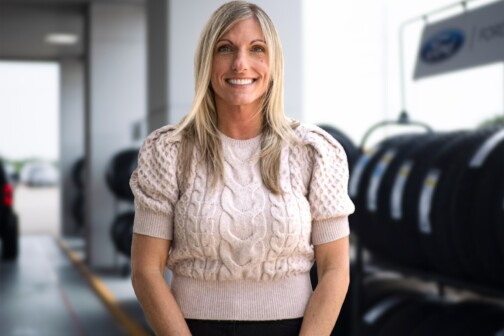
As a former speech and English teacher at W. T. White High School (1972-1978), I have recently been contemplating the available options for educating Dallas’ children. This is a critical issue not only for existing residents, but also for attracting corporate relocations. Employers want to be able to draw from an educated workforce, and employees want to be able to send their children to good schools.
I have four partners at UCR who are Dallas residents and have a total of 15 children attending private schools. The annual tuition cost for these 15 children is approximately $300,000 in after-tax dollars. For commissioned salespeople living through a major economic downturn, this commitment for education becomes a true financial burden. This concerns me.
The pressures that young, affluent families feel to provide a private school education is not a Dallas problem—it is a national problem. My daughter, Sarah, who lives in Manhattan, has four children. When they all attend private school simultaneously, the annual tuition bill will be in excess of $120,000. That’s a lot of money. And when they graduate from high school, my daughter then gets to pay for college—unless, of course, her children receive scholarships.
Incidentally, Sarah, a managing director of a New York private equity firm, graduated in 1993 from Bryan Adams High School, which happens to be my alma mater (class of 1967). My son, 16 years younger than Sarah, is a graduate of St. Johns and then Greenhill. He was afforded the opportunity to attend private schools. It was comfortable for us to send one child to private school, but to send four we would have been very hard-pressed to manage financially.
I asked my partners the other day if they would consider sending their children to a DISD elementary school. They said that they had considered it, but didn’t really want to. I then said to them, “Guys, as a former DISD teacher, I can tell you that many DISD schools were excellent academically. The honors classes were considered some of the best college prep classes in North Texas. But what really made the difference was parental involvement: the volunteers, the donations, the support from the community were critical to each school’s success. I knew many of my students’ parents; they helped me educate their children.”
I then asked my partners to consider the following: Imagine if they took 10-20 percent of the tuition they were spending on private schools and donated it to the public schools their children attended. Other families would follow their lead. Ideally, the parents donating the money would work closely with the principals and the department heads to figure out how to allocate these donations.
There would be more money for teachers, computers, and extracurricular programs, and the education of the children would become a collaborative effort between the parents and the schools. The department heads, administrators, and parents would schedule consistent parental involvement, including, but not limited to, parents monitoring and co-teaching classes. Families where both parents worked during the week would be given opportunities to participate during evenings and weekends. In essence, we would have an effectively functioning PTA where the parents become a true extension of the teachers.
I certainly understand some of the problems with public schools. The quality of instruction, classroom size, and the lack of discipline have been questioned. Parental involvement on a regular, systematic basis might possibly increase accountability in the classroom and diminish disciplinary problems. Active parental involvement should foster change and create positive family dynamics. If a dedicated, positive group of parents is attending regular meetings at the schools to discuss the curriculum, values, and vision for their children’s schools, we might find that a sense of community and school pride would return to the Dallas neighborhoods.
As parents, we have a choice as to how to educate our children. Many of us choose the private school route, but do so with serious financial strain. I suggest that this is not necessary. If your child is predisposed to learning, he or she will learn. Through parental involvement, and ultimately DISD showing major improvement, Dallas home values would increase, population growth would be positive, and Dallas’ tax base would improve.
In a time where we find ourselves without a superintendent of Dallas Schools, I believe the school board has a great opportunity to give our school district leadership who can motivate families and business leaders and articulate the proper message. We need a superintendent who understands public relations and marketing as well as the process of educating our children. We need a superintendent who creates a message that speaks to the families as they need to be spoken to, a message that reaches all communities—a message of interaction, intervention and involvement.
We need to realize that in order to have great schools we must have effectively orchestrated parental and private-sector involvement.
The new mayor of Dallas, Mike Rawlings, has stated that he wants to make a difference in Dallas schools. He realizes that in order for Dallas to reach its potential and have a highly sought-after urban core, we need better schools. But better schools begin in the home. They begin with parental influence and involvement.
I look forward to seeing the efforts of our new mayor and our to-be-determined new DISD superintendent, but I believe committed parental involvement could play an even more important role in improving Dallas schools.
Mickey Ashmore is president of United Commercial Realty. Contact him at [email protected].





